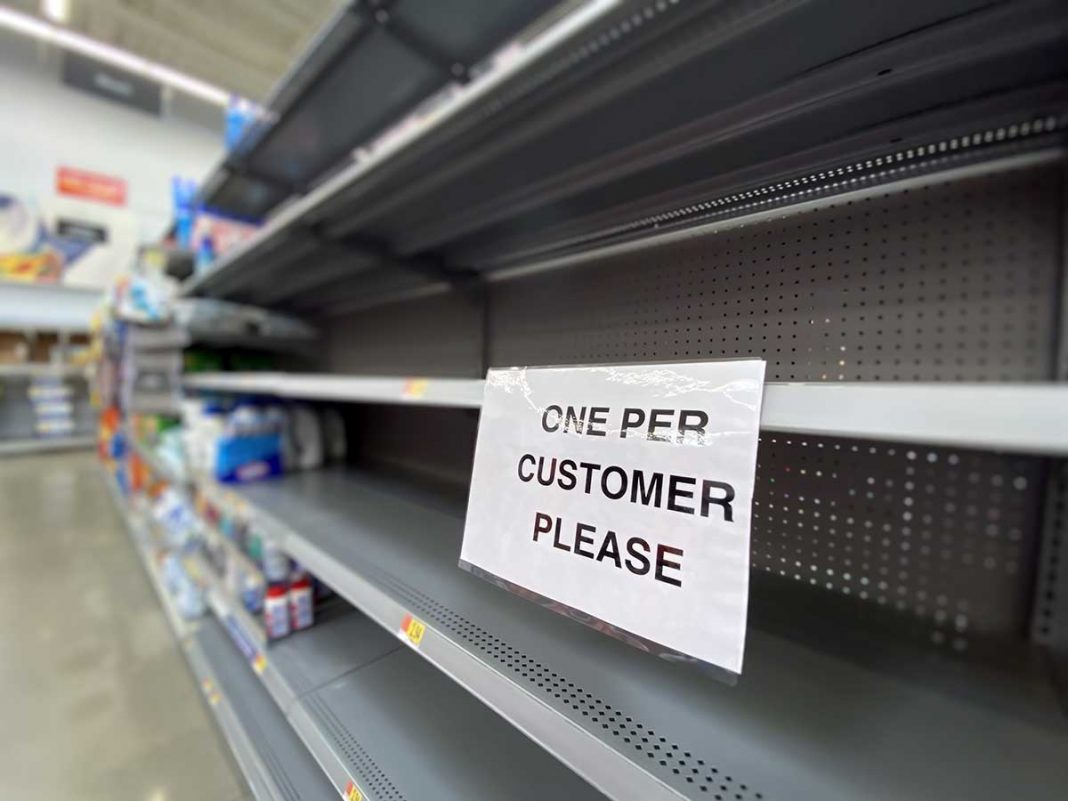Don Watson gently chides readers for worrying about TP
GORE BAY – A Gore Bay resident who lived through the Second World War in England says that the current COVID-19 pandemic concerns that people raise about a lack of toilet paper and sometimes an empty shelf in a grocery store doesn’t compare to the situation people had to deal with in war times.
“I’ve been in the grocery store and hear from people about a shelf being empty or one or another thing not being available. Toilet paper and empty spaces in grocery stores seems to be a topic of conversation these days,” said Don Watson in a Recorder interview. “The grocery store here in Gore Bay has done a great job in keeping the shelves stocked, but all of this seems to be a topic of conversation.”
“When I was a kid toilet paper was at a premium,” stated Mr. Watson. “The talk about a run on toilet paper brought me right back to wartime England and put a smile on my face. I was just a youngster in those days and to find a toilet roll was a real luxury. Paper was in short supply and flyers for stores were unheard of. That left the local newspaper when you could get one. The Northern Echo supplied a cut down version of the paper which was read with gusto. It was then carefully cut into squares, threaded onto string and hung in the outhouse.”
“The only problem with this newspaper was its tendency to part with that wartime black ink and give the user a black behind. That in turn put extra pressure on the mothers to get their children’s underwear back to ‘Persil White.’ We survived with black behinds and I daresay so could people now,” said Mr. Watson.
“Another recent topic of conversation is the empty shelves at grocery stores. It seems to be taking third place behind the weather, health, then empty shelves,” said Mr. Watson. “Thank the Lord we are not used to seeing empty shelves. This again took me back to wartime Britain and food rationing. Coupon books were issued to each person and they contained coupons required before food could be bought. Rationing lasted from 1940 to 1954. This is nine years after war ended but it took that long for supplies to catch up to demand.”
“I have put together a list of the ration for one adult for a week,” continued Mr. Watson. “This information is taken from a book called Victory Cookbook which was written by Marguerite Patton O.B.E. who worked for the Ministry of Food in East Anglia and London during the war.” An adult would receive, in a one week ration, four ounces of bacon and ham to the value of one shilling and two pence (about 20 cents at the time). “Sausage was not rationed but were hard to obtain,” explained Mr. Watson. “Offal was originally unrationed but sometimes formed part of the meat ration.”
Each adult was allowed two ounces (50 grams) of butter for a week, continued Mr. Watson. Every adult was allowed two ounces of cheese (50 grams), although sometimes this was increased to four ounces. Each adult received four ounces (100 grams) of margarine, four ounces of cooking fat (100 grams) often decreased to two ounces, and every adult received three pints (1,800 ml) of milk every week, sometimes dropping to two pints of skimmed or dried milk packet every four weeks. Each adult was allowed eight ounces (225 grams) of sugar in a week and one pound (450 grams) of preserves every two months.
As well, an adult would receive two ounces (50 grams) of tea in a week, and one shell egg a week if available, often decreasing to one every two weeks.
“School kids each received a third of a pint of milk a day, which was distributed at school,” continued Mr. Watson. “Teachers seemed to take a delight in stacking milk crates next to the woodstove in the winter until the milk was hardly drinkable. I remember thinking Canada must be a great country because every kid in my school got a maple sugar stick which was the first candy we had seen.”
“As kids we spent time under the railway bridge collecting pigeons’ eggs for mama to cook with,” recalled Mr. Watson. “We used a catwalk under the bridge which was 175 feet above the river. Hunger can cause you to do crazy things.”
“It should be remembered that items like gasoline, furniture and clothing were all rationed,” said Mr. Watson. “This has been a trip down memory lane for me and there are many more stories about rationing and what we got up to. In the middle of this COVID-19 crisis I don’t think we should be concerned about a couple of empty shelves. This will pass and the shelves will be well stocked again.”





